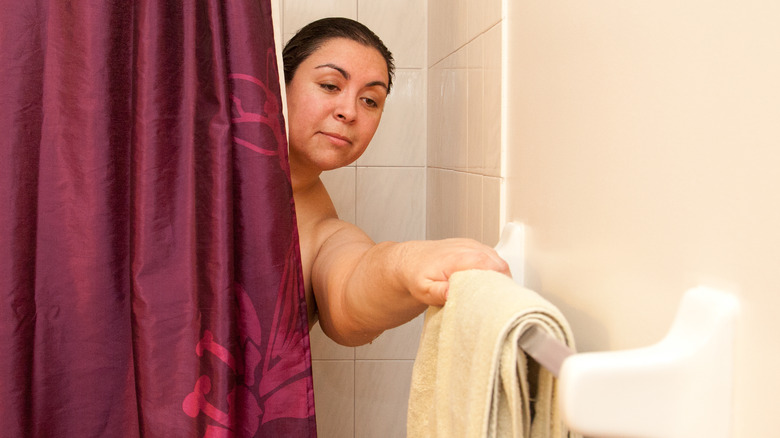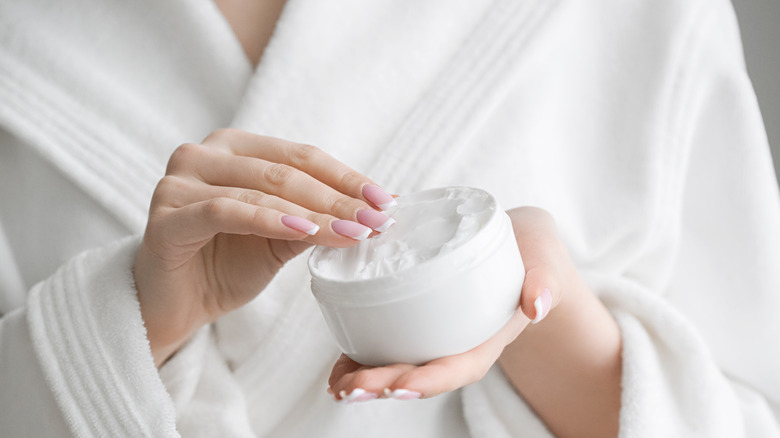The First Thing You Should Do After Showering
You've lathered, rinsed, and scrubbed — now what's the first thing you do after stepping out of the shower? Towel-dry your locks? Apply a facial mask? Whether you have a quick post-shower routine or a multi-step regimen, experts agree there is one step that is best taken as soon as our feet touch down on the bath mat.
When we shower, in addition to getting ourselves squeaky clean, we also do a number on our skin, particularly when using certain products or bathing in water that is too hot (via HuffPost). Luxuriating in steaming hot water for long periods of time can aggravate certain skin conditions by depleting our skin's natural oils. Further drying out skin are harsh shower products such as gels and soaps. Co-founder of Specific Beauty skincare Heather Woolery-Lloyd tells HuffPost that "The ingredient in soap that does this is called a surfactant. Surfactants are chemicals that attract both oil and water. When combined with water, surfactants are able to bind oil and remove these natural oils from our skin." We run the same risks when using chemically-rich shaving products. As Viviane Woodard Skincare points out, the use of a razor is already removing skin cells and natural moisture from the skin's surface.
Because so much skin dehydration takes place in the process of showering, it's important to replenish moisture that's been lost.
Don't dry off just yet
Experts agree it's essential to moisturize right after showering, but many people are unaware they're going about moisturizing the wrong way. Harsh towel-drying can lead to itchy, irritated skin (via Shower Gem). The remaining water on your skin from the shower itself can help preserve moisture when coupled with the use of a moisturizing lotion. In other words, don't scrub yourself bone-dry just yet! Instead, pat dry with a towel and promptly apply your moisturizer while still damp to lock in moisture. However, experts do say there are exceptions to this rule. Areas you'll want to thoroughly dry include the armpits and in between the toes. Leaving these areas wet leaves us susceptible to skin infection.
To prevent the discomfort of dry skin, experts suggest keeping showers short and sweet. Professor of dermatology at the McGovern Medical School Rajani Katta tells Shower Gem, "Ideally, you'll want to use lukewarm temperatures and limit showers to no more than 10 to 15 minutes." Furthermore, Dr. Katta advises that moisturizers that come in tubes are often more effective than those in pump bottles. Opt for fragrance-free products containing ingredients such as petroleum jelly, hyaluronic acid, glycerin, dimethicone, and ceramides, which can help prevent dehydration and preserve skin moisture.


